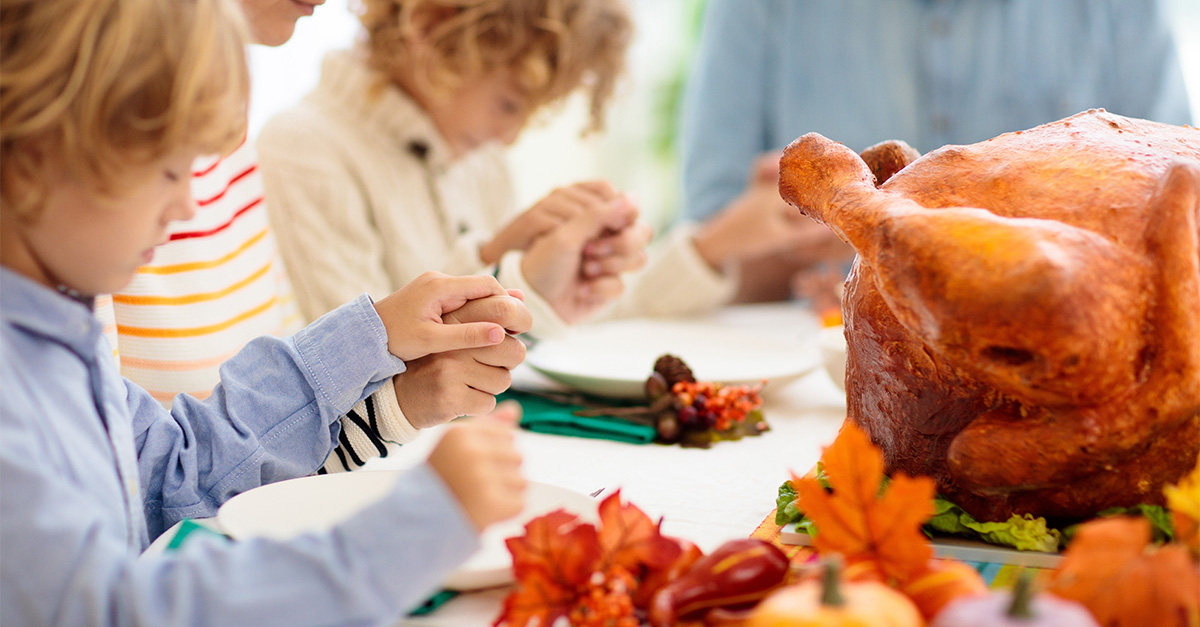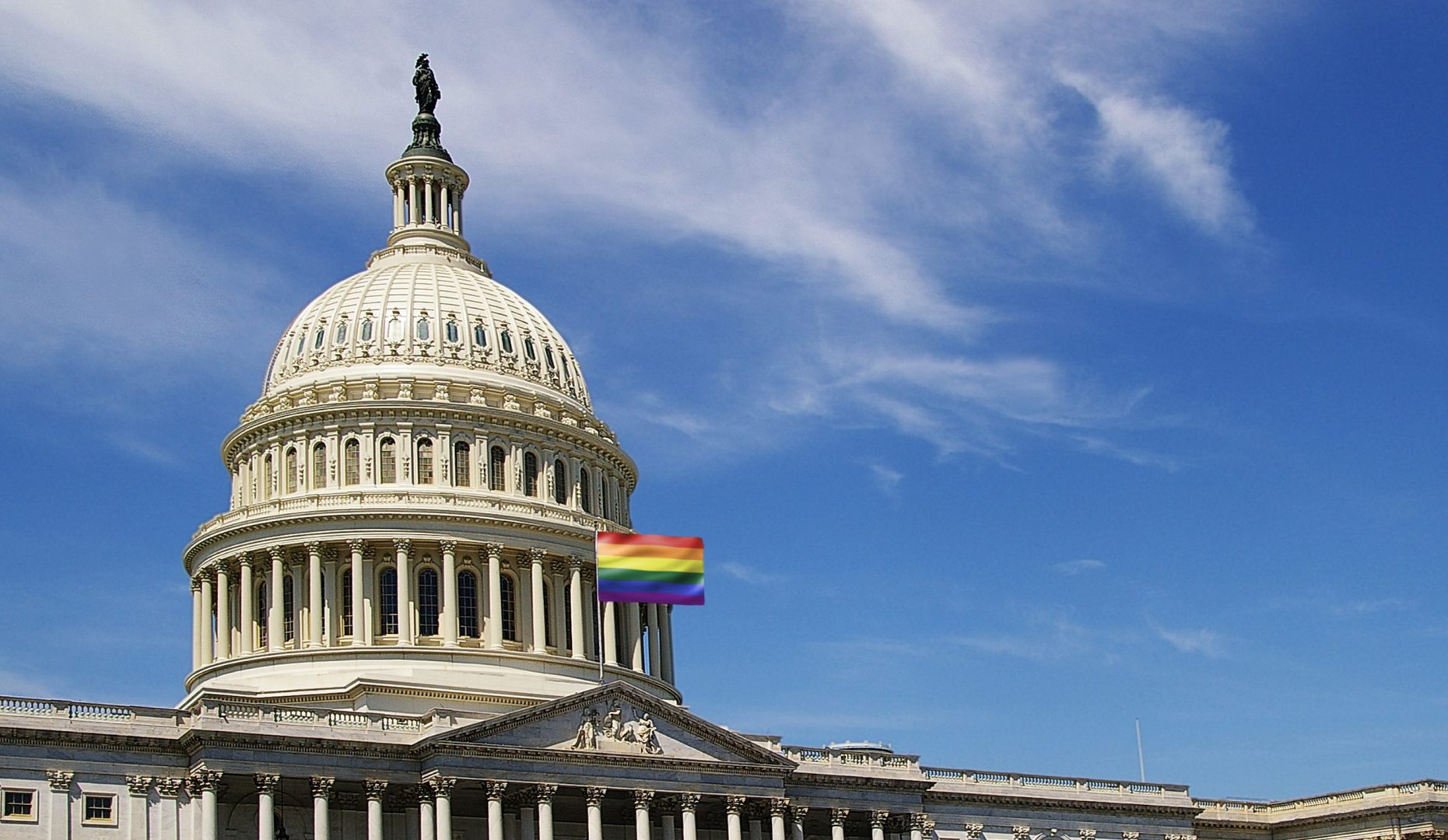


Get a free copy of Parental Rights & Education when you subscribe to our newsletter!

“Thanksgiving is a day on which the children of God should celebrate both the gifts and the Gift-Giver with joyful abandon…Knowing who and where the blessings come from, the one true Creator God, is the prerequisite for genuine gratitude.”
–WILLIAM WOLFE
Here are two true things: God loves to bless His children with many good gifts and God wants His children to remember where (who) those good gifts came from.
This two-fold dynamic, God bestowing abundant blessings on His people and then expecting those blessings to be rightly honored, is found across the storyline of Scripture.
In Deuteronomy 8, as the Israelites listen to Moses give a “second telling” of the law, the Lord reminds the people of the bountiful land He is about to bring them into:
“For the Lord your God is bringing you into a good land, a land of brooks of water, of fountains and springs, flowing out in the valleys and hills, a land of wheat and barley, of vines and fig trees and pomegranates, a land of olive trees and honey, a land in which you will eat bread without scarcity, in which you will lack nothing, a land whose stones are iron, and out of whose hills you can dig copper. And you shall eat and be full, and you shall bless the Lord your God for the good land he has given you.”
–Deuteronomy 8:7-11
Look again at that last verse: “You shall eat and be full, and you shall bless the Lord your God for the good land he has given you.”
Today, many of us will eat and be full, full of turkey, stuffed with stuffing, and packed to our gullets with pie (of course, be careful not to be gluttonous).
But who will you bless for the good food and fellowship you enjoy today? This is the crucial question set before us as we approach the table on Thanksgiving, even as it was set before the Israelites on the edge of the Jordan as they approached the Promised Land so many thousands of years ago.
God, knowing what is in the hearts of man, was well aware that Israelites would be tempted to forget the Giver and wrongly assume they had procured and secured the land and blessings by their own hands. He goes on to warn:
“Take care lest you forget the Lord your God by not keeping his commandments and his rules and his statutes, which I command you today, lest, when you have eaten and are full and have built good houses and live in them, and when your herds and flocks multiply and your silver and gold is multiplied and all that you have is multiplied, then your heart be lifted up, and you forget the Lord your God, who brought you out of the land of Egypt, out of the house of slavery.”
–Deuteronomy 8:11-14
Full hearts and full bellies are a blessing, but they are not without certain risks (and I don’t just mean to our waistlines or blood pressure). To be full is to be in danger of forgetting. That is why God warns the Israelites to “take care” lest they forget God, their deliverer and their provider.
Humble remembrance and obedience were the keys to remaining in the good land, to enjoying the perpetual feast of the land flowing with milk and honey. Every day was meant to be Thanksgiving for the people of God in the Promise Land. Yet the Israelites failed, just as Adam failed in the Garden, and just as we, too, have failed in our own lives — often priding ourselves and our own hands for whatever good things we have.
This is why (general) thanksgiving and Thanksgiving (the holiday) go hand in hand with the Gospel. Christ crucified for sinners and raised to life for our justification is the greatest gift God has given to the children of men, the ones who insisted on forgetting and raising their own hearts up in pride and rebellion.
No matter what circumstances we find ourselves in today, whether of plenty or of want, has God not brought us out of the “land of slavery” — that is, the land of sin and death — and into the good and bountiful kingdom of His Son, Jesus Christ? If you are in Christ today, that is indeed your testimony. Christians then can sing, as the hymn says, that we “are bound for the Promised Land.” And we can thank God as we journey on our pilgrim way.
For what do we lack if we have Christ? Nothing. As Charles Spurgeon once said, “If a man has Christ, then what does he want else? If a man has Christ, he has everything.”
Everything — given by grace. As a gift.
Indeed, the Pilgrims who celebrated the “First Thanksgiving” holiday in America knew this. They had come to the New World in search of a good land where they could worship God freely. Of the 102 passengers who sailed on the Mayflower, 45 lost their lives as a result of disease and hardship during their first winter in the New World. Yet that autumn, the pilgrims, led by Governor William Bradford, celebrated God’s providence with a special feast and ceremony.
One pilgrim, Edward Winslow, recounts the day like so:
“Our harvest being gotten in, our governor sent four men on fowling, that so we might after a special manner rejoice together after we had gathered the fruits of our labor. They four in one day killed as much fowl as, with a little help beside, served the company almost a week. At which time, amongst other recreations, we exercised our arms, many of the Indians coming amongst us, and among the rest their greatest king Massasoit, with some ninety men, whom for three days we entertained and feasted, and they went out and killed five deer, which we brought to the plantation and bestowed on our governor, and upon the captain and others. And although it be not always so plentiful as it was at this time with us, yet by the goodness of God, we are so far from want that we often wish you, partakers of our plenty.”
His last line echoes the exhortation from Deuteronomy: “yet by the goodness of God, we are so far from want that we often wish you, partakers of our plenty.”
Today is a day when most (not all) will be “far from want” in regard to earthly gifts such as food, friends, and family — and that is a good thing. But all (not most) who are in Christ today are “far from want” indeed in the realm of spiritual blessings, just as Paul reminds us in Ephesians 3:1:
“Praise be to the God and Father of our Lord Jesus Christ, who has blessed us in the heavenly realms with every spiritual blessing in Christ.”
With this assurance, Thanksgiving is a day on which the children of God should celebrate both the gifts and the Gift-Giver with joyful abandon. Laugh with your friends and family. Feast in celebration. Feast — but don’t forget.
For there is no true thanksgiving without right remembering. Knowing who and where the blessings come from, the one true Creator God, is the prerequisite for genuine gratitude.
So, raise a glass, or lift a leg of turkey, with humble hearts and eyes lifted to heaven, honoring the Hands who so graciously fill ours with good gifts. This Thanksgiving don’t forget to thank God, “for it is he who gives you power to get wealth” (Deuteronomy 8:18).
Let me close with the Doxology, that great hymn of praise and honor and blessing — and of thanks — to God:
Praise God, from whom all blessings flow; Praise Him, all creatures here below; Praise Him above, ye heavenly host; Praise Father, Son, and Holy Ghost.
Amen. And Happy Thanksgiving!
Follow William on Twitter! @William_E_Wolfe
Ready to dive deeper into the intersection of faith and policy? Head over to our Theology of Politics series page where we’ve published several long-form pieces that will help Christians navigate where their faith should direct them on political issues.

Notifications